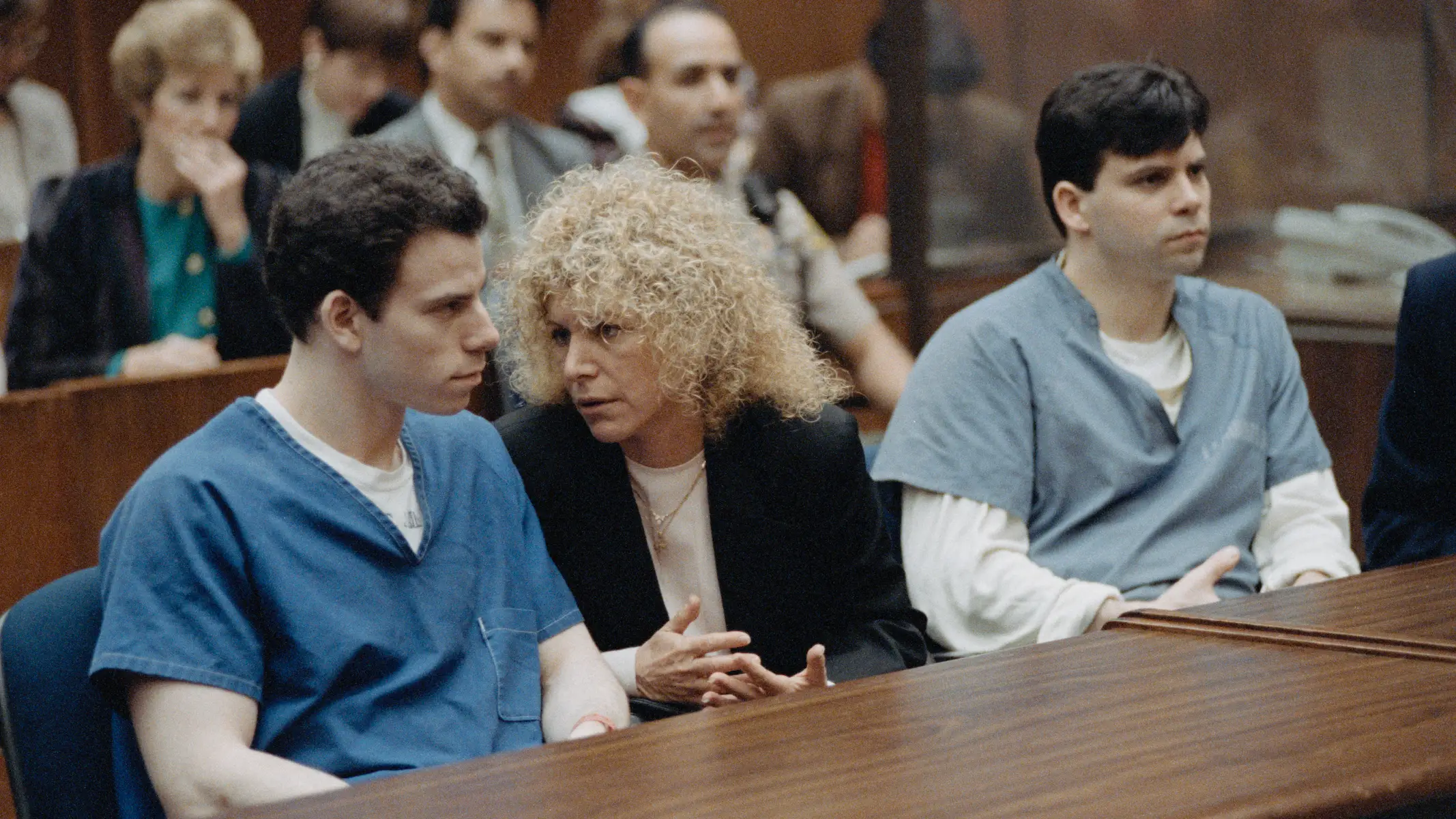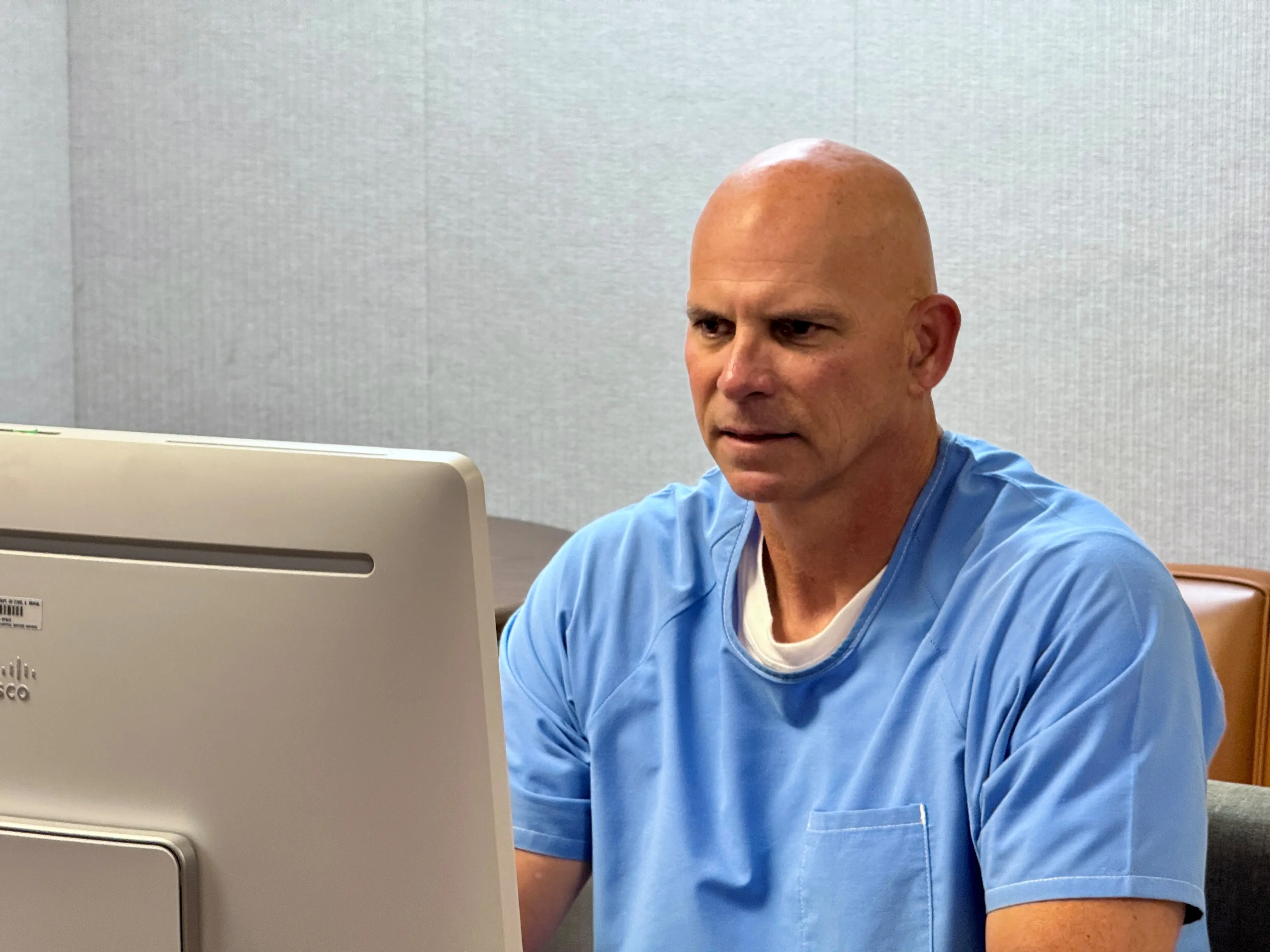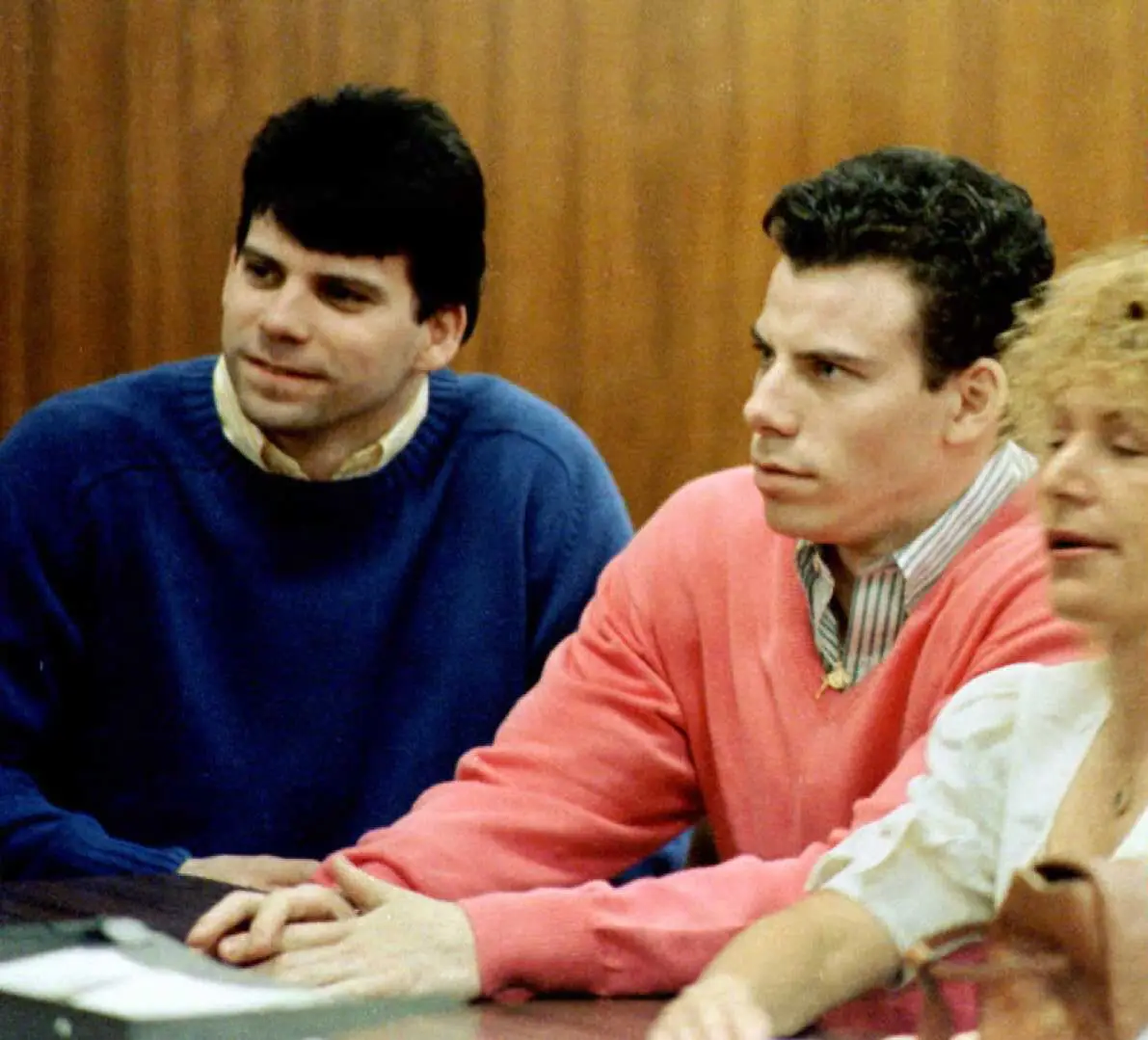
Warning: This article contains discussion of rape and sexual abuse which some readers may find distressing.
The world watched last week as the Menendez brothers, Erik and Lyle, were denied parole in California after two days of hearings.
The hearings came over 30 years into their life sentences for killing their parents, José and Kitty Menendez, in 1989, citing years of alleged mental, physical, and sexual abuse as the reason behind the murders.
Erik's parole, the audio of which has since been 'leaked', took place last Thursday (21 August) while his older brother Lyle's happened the following day on Friday (22 August).
Advert
They both received three-year parole denials, but may seek an earlier review in about 18 months, with the commissioners citing several concerns, including their rule violations in prison, their explanations for the murders, and their risk of reoffending as the reason behind the controversial decision.
Cellphones in prison

Both Menendez brothers were disciplined for possessing illicit cellphones while in prison, which commissioners said undermined their positive achievements in prison and showed disregard for rules.
“What I got in terms of the phone and my connection with the outside world was far greater than the consequences of me getting caught with the phone," Erik explained.
Commissioner Robert Barton said Erik's 'selfish' behaviour showed he believed 'the rules do not apply to him and the ends justify the means'.
Meanwhile, Lyle had two recent cellphone infractions, including one in March. He claimed that prison staff were monitoring his communications with his wife and family and selling their content to tabloids, outlining why he saw cellphones as a privacy measure.
Lyle added that there was 'a lot of stress' in his marriage around the time he transferred to the prison in San Diego, and he was keen to stay in touch with his wife.
"I had convinced myself that this wasn’t a means that was harming anyone but myself in a rule violation," he said. "I didn’t think it really disrupted prison management very much."
Prison conduct

Erik had more serious infractions, including ties to a prison gang and substance abuse in earlier years, while Lyle showed patterns of deception and rule-breaking.
The former was questioned about why he associated himself with the gang called the Two Fivers and why he helped them with a tax scheme around 2013.
Explaining the situation, Erik claimed he was trying to survive an 'extremely violent yard' where close friends were stabbed or raped.
"I was in tremendous fear," he said (via PBS). "When the Two Fivers came and asked for help, I thought this was a great opportunity to align myself with them and to survive."
Erik added that he prioritised self-preservation over the rules as, at the time, he had no hope of ever getting out. Admitting that he did use drugs and alcohol in his early years behind bars, he highlighted that he became sober in 2013.
While Lyle committed fewer violations, commissioner Julie Garland stated he still demonstrated 'antisocial personality traits like deception, minimisation and rule breaking that lie beneath that positive surface'.
Garland added that prisoners who break rules are more likely to do so in society as well.
Targeting Kitty Menendez

Commissioners emphasised the brutality and lack of compassion in killing Kitty, calling it especially troubling. Barton claimed Kitty's murder showed that Erik was 'devoid of human compassion' at the time.
"I can’t put myself in your place. I don’t know that I’ve ever had rage to that level, ever," he said. "But that is still concerning, especially since it seems she was also a victim herself of the domestic violence."
He also stated that the brothers, who were 18 and 21 years old at the time of the double murder, weren't in imminent fear for their lives and should have sought help from other family members or gone to the police.
Details of the murder include shotgun blasts to José's back, a point-blank shot to Kitty's face and shots to their kneecaps staged to mimic a Mafia killing.
Garland added that Lyle's shooting of his mother one final time was 'callous', pointing out what he did to cover up the crime, which included lying to the police and trying to avoid prosecution.
In one excerpt of the 'leaked' audio of Erik's trial, he explained to the board why he and Lyle targeted Kitty.
"She was his [dad’s] victim, I should have known that, I should have separated it in my mind. But that night, I saw them as one person." he said. "I was raised purposely without the moral foundation that I should not do wrong when I know the difference between right and wrong. I was raised to lie, to cheat, to steal, steal in a sense, in an abstract way."
'Moderate risk'

Both Erik and Lyle were deemed 'moderate risk' in a state where parole is rarely granted under such conditions.
Their 'moderate risk' designation was seen as insufficient for release, with Barton considering the assessment to be neutral, as far as he considered it at all.
According to a 2022 analysis by the Prison Policy Initiative, only 22 per cent of California prisoners with 'moderate risk' are granted parole.
If you have been affected by any of the issues in this article and wish to speak to someone in confidence, contact The Survivors Trust for free on 08088 010 818, available 10am-12.30pm, 1.30pm-3pm and 6pm-8pm Monday to Thursday, 10am-12.30pm and 1.30pm-3pm on Fridays, 10am-12.30pm on Saturdays and 6pm-8pm on Sundays.
Topics: Menendez Brothers, US News, News, Crime, True Crime